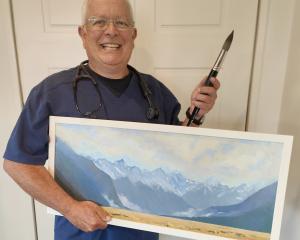
The Office of the Director of Mental Health 2015 annual report shows 576 ECT patients last year did not give consent, compared with 259 in 2014, an increase of 122%.
The report, released late last week, says the increase could be due to previous under-reporting in health boards.
There had been ``focused efforts'' to improve DHBs' reporting of unconsented ECT.
At the Southern District Health Board, eight ECT patients did not give consent. The DHB reported zero such cases in the previous annual report.
All up, 28 patients at SDHB had ECT last year, compared with 21 in 2014.
Patients can be given ECT against their will if it is considered to be in their best interests.
Without consent, a second opinion must be obtained from a psychiatrist appointed by the Mental Health Review Tribunal.
ECT involves a brief pulse of electricity to the brain in order to produce a seizure.
DHBs reported 185 serious adverse events in mental health services, of which 144 involved suspected suicide. Of the suspected suicides, three occurred in inpatient wards and the rest happened in the community.
The remaining serious adverse events involved serious self-harm (18 events) and serious adverse behaviour (23 events).
Director of mental health Dr John Crawshaw said a ``record number'' of people received specialist mental health and addiction services.
Last year, 162,222 people received specialist services, compared with 143,060 in 2011.
``While this reflects that more New Zealanders are seeking and receiving mental health care, which is positive, services are experiencing increasing pressure.
``The ministry is committed to the continued improvement of mental health service delivery. We are actively working to identify innovative, sustainable solutions to the increased demand on specialist services,'' Dr Crawshaw said in a press release.
Dr Crawshaw's statement says the report shows the use of seclusion in mental health is declining.
Since 2009, the number of patients secluded in adult inpatient services decreased by 30%. The total number of seclusion hours had decreased by 58%.
Comments
Compulsory treatment can only be administered under the Compulsory Treatment and Assessment Act, a legal procedure, unless the act has been amended. Forcible treatment may, in some circumstances, result in assault charges.





